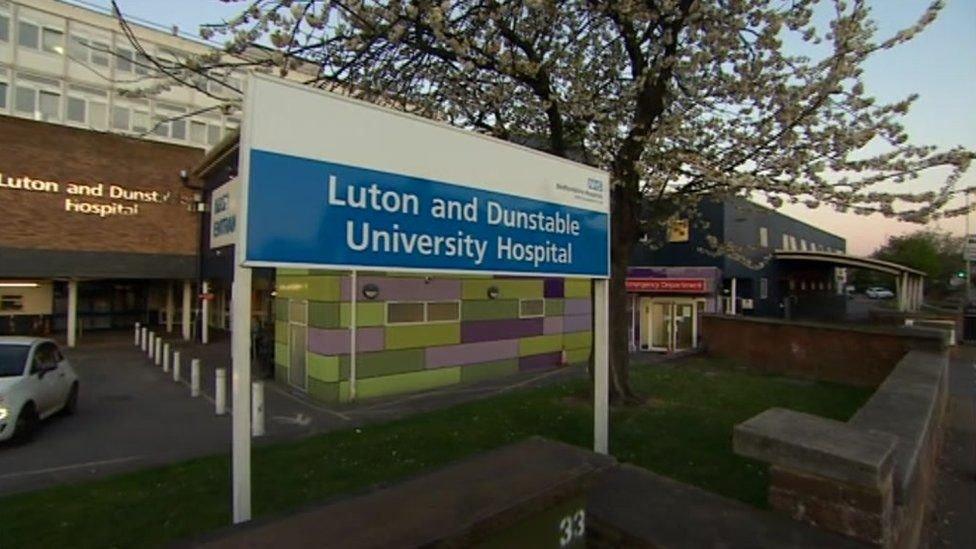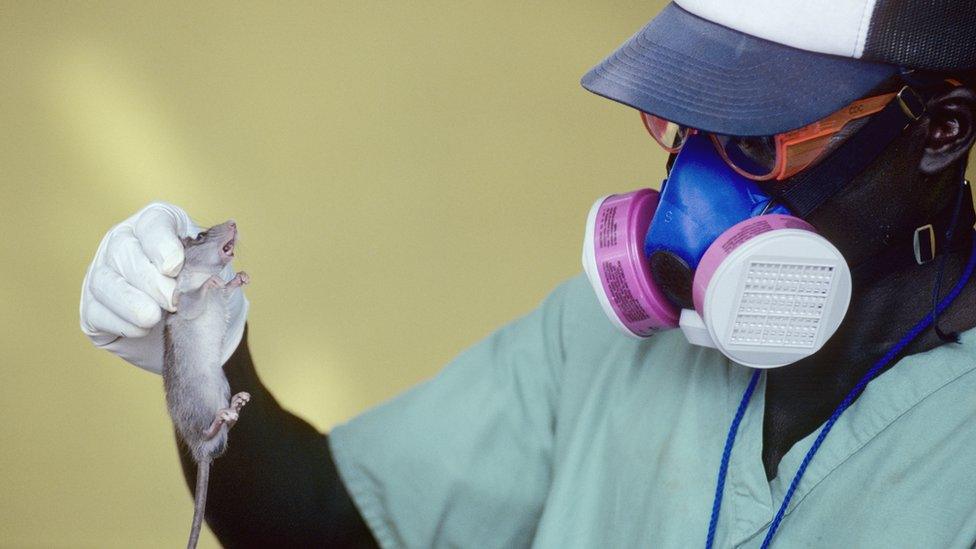Lassa fever: Addenbrooke's and Luton and Dunstable downgrade alert level
- Published

Efforts to contact trace Luton and Dunstable Hospital staff who might have been in contact with Lassa fever patients have been completed
Two hospitals have ended major incidents which were declared after cases of Lassa fever were found.
Three cases of the illness were found at the Luton and Dunstable Hospital last month, and included a newborn baby who later died.
Patients sent to Addenbrooke's Hospital for treatment led to staff having to isolate.
Addenbrooke's said while major incident status has been removed the trust remains in critical incident status.
The Lassa fever cases were found in members of the same family. That family had returned from travel in west Africa where the disease is said to be persistent, external.
Staff who might have been in contact with the virus had to self-isolate for a fortnight with no patient contact for 21 days, according to an email sent to staff.

What is Lassa fever?

Lassa fever, described as a cousin of Ebola, is spread through contact with bodily fluids (blood, saliva, urine or semen) from infected people
The urine or faeces of infected rodents can also carry the disease
Symptoms include fever and can be similar to flu, although bleeding through the nose, mouth and other parts of the body may also occur
Most people with Lassa fever recover but some can come down with severe illness

It is understood the number of staff affected at both Addenbrooke's and the Luton and Dunstable was in the hundreds.
Some operations were forced to be cancelled as a result of the isolation.
A spokeswoman for the Luton and Dunstable Hospital said: "I can confirm the isolation period for the contact tracing exercise has also concluded now for the Luton and Dunstable University Hospital."
In a statement Addenbrooke's said the trust had "stood down from the major incident for high consequence infectious disease (HCID) at 09:00 this morning (Friday).
"However, we remain in critical incident due to capacity," it added.

Find BBC News: East of England on Facebook, external, Instagram, external and Twitter, external. If you have a story suggestion email eastofenglandnews@bbc.co.uk, external
Related topics
- Published15 February 2022
